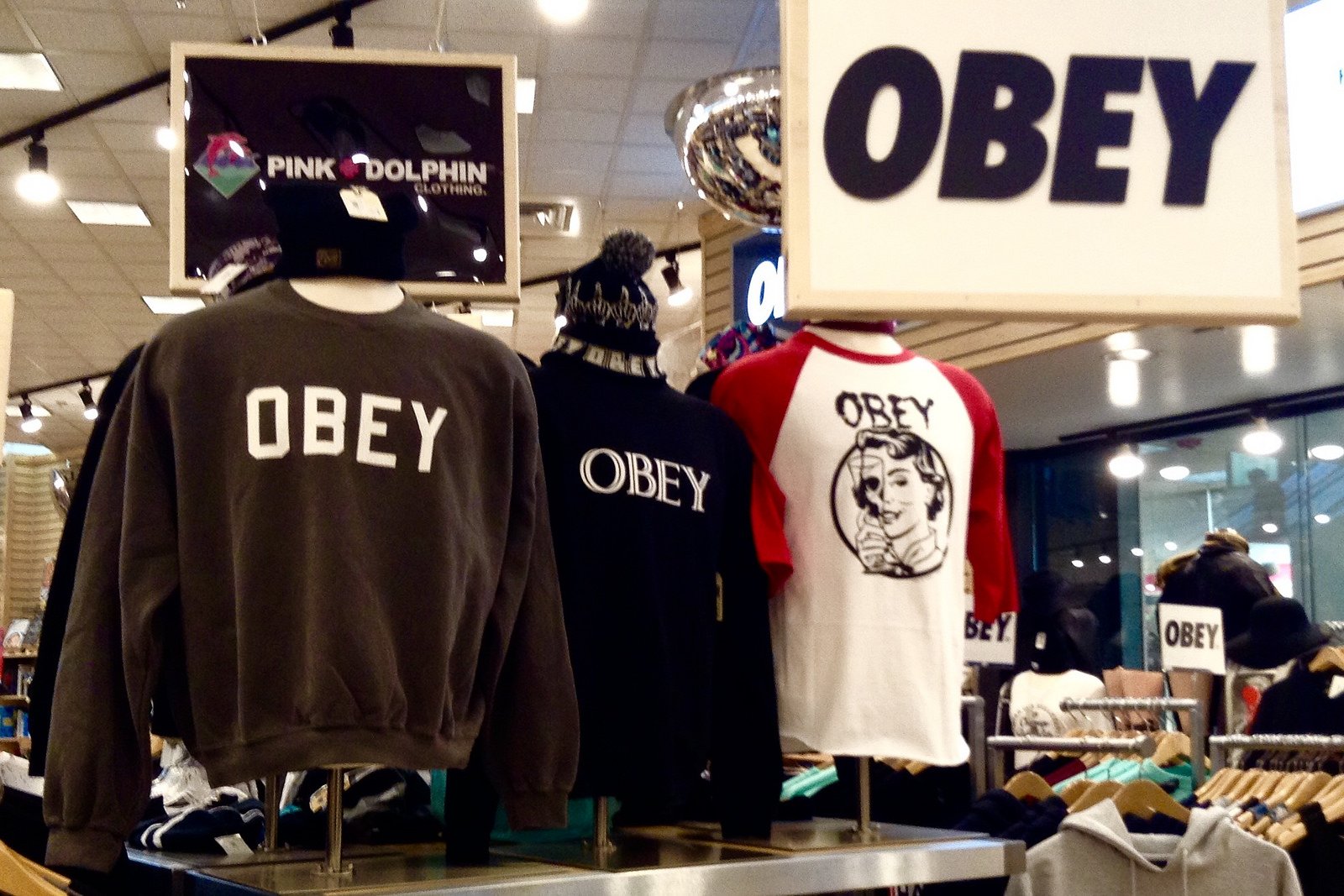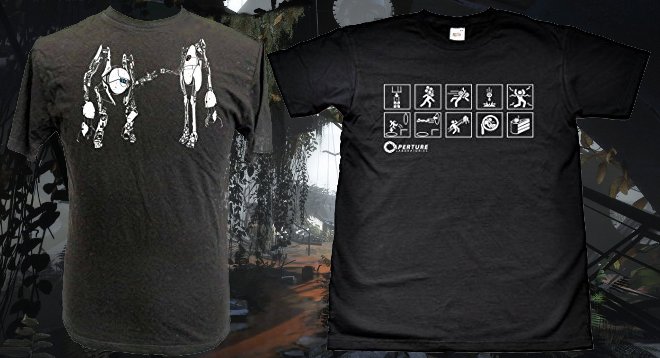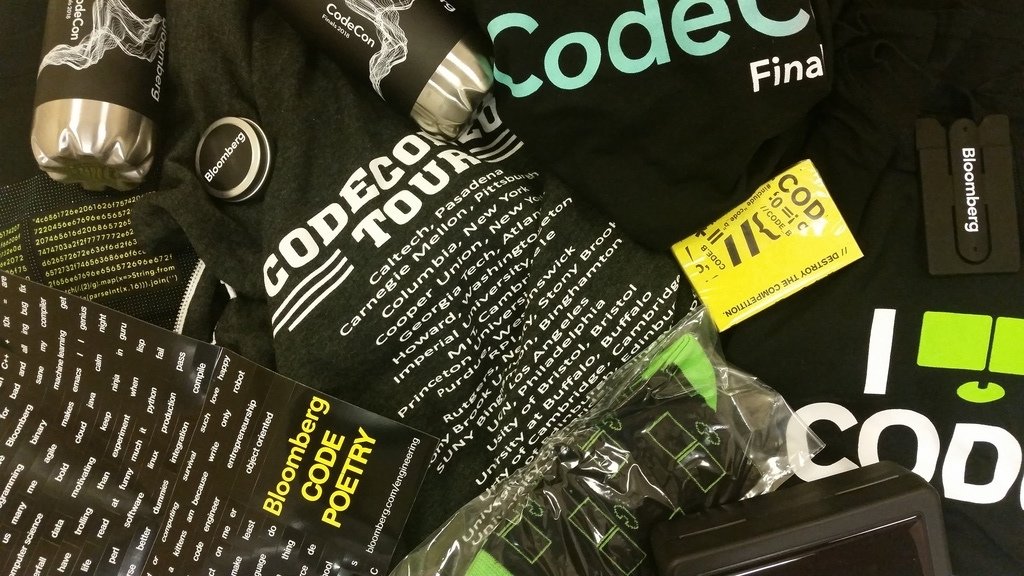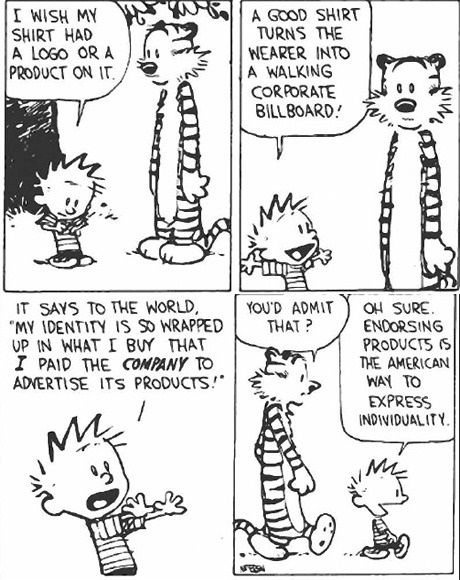Logomania
AKA: Don't let corporations brand you.
Something I’ve been struggling with recently is the idea of wearing a company’s brand. I’ve been thinking about it for a few months, and I have conflicted feelings. I’m talking about wearing clothes that proudly emblazon the logo or trademark of a company.
It seems strange to me that I (and many, many, others) would pay to essentially advertise a company we are not associated with, and I’m trying to unpick the connections between my identity and the things I like and wear.
What this essay isn’t about
The idea of wearing ‘named brands’ like Levi’s, Obey, or Calvin Klein is alien to me. It’s not something I’ve ever understood or have had a desire to do. A clothing brand isn’t something that I think you can have a connection with - I can understand liking a specific unique-ish item, but wearing and wanting an otherwise plain top that just says “OBEY” or whatever? Nope, I don’t understand that.
 “Obey Brand Clothing” by Mike Mozart is licensed under CC BY 2.0
“Obey Brand Clothing” by Mike Mozart is licensed under CC BY 2.0
It’s a chicken and egg problem, I think. You might associate with the brand because you’ve been wearing it so long. But then what made you start wearing it in the first place? Seeing it on your peers? Why did they start wearing it?
To me, those kind of brands just seems to be a way to show-off wealth or status, and people wear them for that, and not because they identify with the brand, message, or product (though perhaps they may feel that they identify with the kind of person who would wear those brands?). The idea of wearing these brands is so alien to me that I don’t think they fit in this discussion.
Wearing a company’s brand
I’ve begun to realise that it is quite odd to choose to wear an item that bears the logo (or other recognisable design/feature) from another product/media you’re interested in. The item could be a t-shirt, hoodie, jacket, or bag and could depict something related to a band, film, video game, or television series.
Historically, most of the clothes I purchased for myself fit neatly into this category. I purchased T-shirts from the internet featuring graphics from game series like Portal, Half Life, Star Citizen, and later, The Culling. I even bought a medic-themed messenger bag, because it reminded me of Team Fortress 2. People noticed that I wore things like this, and bought me similar clothes as gifts, featuring content from Serious Sam, Breaking Bad, Halloween, and Batman.
 Two instances are these Portal 2 Tees, which I bought in July 2012.
Two instances are these Portal 2 Tees, which I bought in July 2012.
Images taken from Amazon
It seemed natural to me to buy these things. I was mirroring the behaviours of the people I came into contact with. At high school, my friends and I were obsessed with video games and some of them had video game t-shirts. When I moved on to my sixth form, my new friends were more interested in music, and liked buying, owning and wearing ‘band merch’ t-shirts. At university, a lot of computer science students wear ‘geeky t-shirts’, so my video game shirts didn’t feel too out of place and I didn’t really question it or think about it.
Is this in my interest or someone else’s?
The first time I questioned wearing this type of garment was when I saw the ‘sick loot’ from a University careers fair. I didn’t go myself, but I saw the sort of things that my friends took back. Pens, t-shirts, stickers, even socks, all featuring the branding and logos of companies that I’m sure my friends didn’t identify with or care about. These companies paid big money to give students things with branding on it. I reflected on my experience running the university hackathon society; Companies had paid sponsorship just to have a brief mention at a society event.
 Branded items from a University Careers Fair.
Branded items from a University Careers Fair.
Image sourced by Matt
With my clothing choices, I was paying companies to put their branding on me. I realised that I had paid to become a walking sandwich board.
I found it kind of disturbing.
But then I reasoned with my self:
“You know, it obviously isn’t that bad. I’m showing support for the people who make things I like. I’m wearing the team colours! And most of the clothing I bought doesn’t even have the name of the product it’s associated with! - so it couldn’t be veiled advertising… right? And anyway, even if it is advertising, I identify with these things, don’t I? And who cares if it is advertising!?”
Like someone who has had their Doublethink revealed, I tried to calm the problem and pretend it didn’t exist. I tried to explain away the cognitive dissonance I was feeling. In short, I was in denial.
I have always disliked clothes that had the name of the series or media that they are associated with. I’d usually only choose a product if it was subtle, as if it could be an in-universe thing. Even if I really liked something, if I could only find items that had a name or a logo, I tended to avoid it. I was, in a sense, snobbish about it.
 This ‘Breaking Bad’ themed T-shirt doesn’t include any branding.
This ‘Breaking Bad’ themed T-shirt doesn’t include any branding.
Image sourced from Something Geeky
Tribal Identification
I think a big problem with branded clothing (and clothing differentiation in general) is that it leads to a kind of tribalism, tribal identification, and groupthink.
We’re more likely to want to interact with people “of the same tribe as us” - in this case, people who dress the same as us or like the same things. Just because you have this one trait or interest in common, doesn’t mean that you’re going to get on well with each other.
Similarly, you may be apprehensive to interact with someone because their clothes identify them as an ‘other’ to the tribal part of your mind.
I have found that I have had interactions with people just because of the ‘branded’ items that I am wearing. Interactions that sometimes, I would rather not have had. I’m sure I missed out on some positive interactions because of the way I have chosen to dress too.
I think part of my ‘not wanting something with the name/logo’ snobbery was that I didn’t want people to talk to me just because they could identify my t-shirt and knew that it was tangentially related to something they liked. I didn’t want people to mention my t-shirt (or whatever) if they had only heard the name of the thing I liked - they must have experience with the thing to be able to talk about it with me.
But then, I think that I also didn’t really want to have a discussion about something I liked with a random person anyway. If they’re talking to me about something I like just because they saw it on my t-shirt, then they will have an idea of who and what I am before I even respond to them - that isn’t a natural conversation to me. I much prefer discussing things with people I already know, even if I’ve only known them for a few minutes or hours. I just don’t want the sole reason for discussion to be because of my t-shirt. My personality and identity is more than that but they won’t see it.
Voting With Your Wallet
I talked about the topic of branded clothing with my friend Tunde when I saw that he was wearing an Avenged Sevenfold t-shirt. I explained how I had been thinking that it was odd to wear this kind of thing. He thought about it, then explained that part of the reason he wore this type of branded clothing was because it was ‘voting with your wallet’ - he wanted to support the band he liked, and he liked ‘advertising’ them too for the same reason.
If you accept those terms, that’s a valid line of reasoning. However, all too often these products are not always sold by the company who make the product. For instance, the Portal 2 shirts I showed above (and once purchased) were not produced by Valve, but TeamZad. If you’re buying the support the company, it is probably important to you that you only buy licensed products, which might limit your buying options, especially if the company you want to support isn’t taking advantage of commercialisation.
BYOB
I don’t want the reader of this essay to make any assumptions about my intent or meaning. I’m trying to analyse the things that we take as given and ask myself how I feel about them. This issue is one that I’m particularly confused and lost about. I don’t know how I feel. I’m not trying to dissuade anyone from buying this sort of item. If it makes you happy, great! Go ahead and wear it! I’m probably going to keep wearing similar, and don’t intend to get rid of what I currently have, though mostly because of monetary concerns. I already feel that I don’t particularly identify with anything that I wear other than my Frequency Central t-shirt.
I think it’s important to think about how these items make you feel and if you feel comfortable with what they actually represent. Today, I saw a Descendents tee in the window of the Beatnik Emporium and thought it was cool, but quickly realised that the sale of that item was no longer connected to the band. I think it’s important for people to remember that they also aren’t “less of” a fan of something because they haven’t bought merchandise for it.
I do think that it’s important to define yourself as more than just what you like or what you wear, though. Whilst I was dealing with depression, I struggled with the idea that I didn’t really have any hobbies that weren’t related to video games or programming, and I felt like I didn’t have my own identity.
 From Calvin and Hobbes
From Calvin and Hobbes
I think it’s important that we cultivate our own identity. I also think that it’s important not to limit or simplify your identity to conform to the expectations of other people. I have a whole host of character traits, things I like, and things I find interesting that aren’t possible to distil into t-shirt format. My thoughts about life and society, my fascination with brutalist architecture and urban decay, and my captivation for the mysterious (for example, UVB-76, or the case of Elisa Lamb) are all very real parts of my identity that would be impossible to know from a cursory inspection.
I think the most important takeaways are these:
- Don’t assume anything about someone just because of what they are wearing. Your assumptions are likely incorrect and it reduces your perception of the person down to a stereotype.
- Think about how you feel about the idea of wearing corporate branding. If it bothers you, consider changing things. If you’re fine with the idea of it, carry on as you were.
- The world needs your original expression now more than anything. Become Your Own Brand. Make your own style.
- Your identity is separate from your interests and the traits you display.
- Remember that people will implicitly be making assumptions on you based on everything you do. It’s okay to ignore that though. Contravening someone’s expectations is probably a good thing as it might encourage them not to give in to stereotypes - plus, it keeps you interesting.
P.S. I'm late to the party, but I recently got a twitter account that you can follow here.